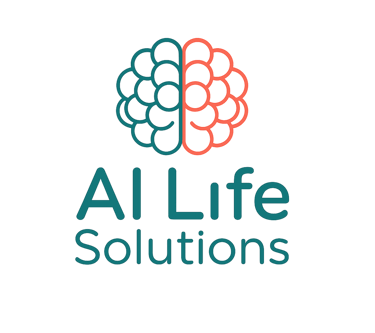WEDDING SEASON SALE! THE AI WEDDING PLANNER GUIDE NOW $27

AI vs Traditional Wedding Planning: Which Saves More Money?
You're weighing the expense of hiring professionals against the risk of costly mistakes, wondering if new AI tools can really deliver the same results as experienced planners, and trying to figure out which approach actually protects your budget in the long run.
Caroline
3/26/20257 min read
Wedding planning feels like a financial minefield where every decision could either save you hundreds or cost you thousands. You're weighing the expense of hiring professionals against the risk of costly mistakes, wondering if new AI tools can really deliver the same results as experienced planners, and trying to figure out which approach actually protects your budget in the long run.
Let's cut through the marketing claims and look at the real numbers. After analyzing data from hundreds of couples who used different planning approaches, the financial picture is more nuanced than either AI enthusiasts or traditional planners want to admit. The truth about costs might surprise you.
AI tools can absolutely save money, but not always in the ways you'd expect. Traditional planning offers financial protection that has real value, but the costs extend beyond what appears on planning contracts. The couples who save the most? They're using strategic combinations of both approaches to maximize financial benefits while minimizing risks.
The Hidden Costs of Traditional Wedding Planning
Professional planning fees are just the tip of the financial iceberg. Full-service planners typically charge $3,000-$8,000, but that's not where the hidden costs lurk. Many planners work on commission with preferred vendors, which can inflate your overall spending even when you're getting "discounted" rates.
Traditional planning also operates on industry-standard timelines that may not optimize for your financial situation. Booking vendors 12-18 months out might secure availability, but it prevents you from taking advantage of last-minute deals or seasonal pricing variations.
Try this prompt:
"Analyze the total financial impact of traditional wedding planning beyond just planner fees. Help me understand vendor commission structures, how far-in-advance booking affects pricing flexibility, and what hidden costs couples often don't consider when working with professional planners."
One couple discovered their planner's "preferred vendor" recommendations would have cost them $4,200 more than alternatives they found through independent research, even after factoring in the planner's vendor discounts.
Where AI Tools Actually Save Money
AI's biggest financial advantage isn't replacing expensive services... it's preventing expensive mistakes before they happen. Budget analysis tools can spot allocation problems early, vendor research prevents you from overpaying due to information gaps, and timeline optimization can help you take advantage of pricing opportunities.
AI excels at market rate analysis, helping you understand fair pricing before negotiations begin. It can also generate multiple budget scenarios instantly, letting you see how different choices affect your overall spending patterns.
Try this prompt:
"Calculate potential cost savings from using AI tools for wedding planning. Compare market rate research capabilities, budget optimization benefits, vendor comparison efficiency, and mistake prevention value. Show me specific dollar amounts these advantages might save on a $[your budget] wedding."
The real savings often come from informed decision-making rather than just finding cheaper options.


Comparing Vendor Selection Costs
Traditional planners leverage industry relationships to negotiate pricing and secure vendor availability. However, these relationships may limit your options to their preferred network, potentially missing better-value alternatives outside their usual circles.
AI tools provide access to broader vendor research but can't negotiate on your behalf or leverage existing professional relationships. The trade-off is between proven vendor relationships versus expanded options and independent evaluation.
Try this prompt:
"Compare the financial implications of vendor selection through traditional planning relationships versus AI-powered research. Consider factors like: access to vendor discounts, negotiation leverage, breadth of options, ability to find emerging professionals with competitive pricing, and prevention of vendor-planner commission markups."
Budget Management and Oversight Differences
Professional planners provide ongoing budget oversight and can catch cost overruns before they spiral. They understand how change orders work, which vendor modifications are expensive, and how to negotiate contract terms that protect your budget.
AI tools offer real-time budget tracking and can model different spending scenarios, but they can't provide the experiential knowledge of which vendors typically charge for extras or how to negotiate change orders effectively.
Try this prompt:
"Create a cost-benefit analysis comparing professional budget management versus AI-powered budget tracking. Include factors like: mistake prevention value, change order management, contract negotiation expertise, and real-time budget monitoring capabilities. Calculate potential savings or costs for each approach."
Day-of Coordination Financial Impact
Wedding day logistics failures can be expensive to fix in real-time. Professional coordinators prevent costly last-minute vendor issues, timeline problems that create overtime charges, and setup mistakes that require emergency solutions.
AI can create detailed day-of plans and communication systems, but can't provide real-time problem-solving when things go wrong. The question becomes: how much is prevention of potential wedding day financial disasters worth?
Try this prompt:
"Analyze the financial value of professional day-of coordination versus AI-powered day-of planning systems. Consider costs of typical wedding day problems that coordinators prevent, overtime charges from timeline issues, emergency vendor fees, and stress-related decisions that impact spending."
Mistake Prevention Value Analysis
Both approaches prevent different types of expensive mistakes. Traditional planners prevent logistical errors, vendor conflicts, and timeline problems through experience. AI prevents research mistakes, budget allocation errors, and information gaps through comprehensive analysis.
Try this prompt:
"Compare the types of expensive wedding planning mistakes prevented by traditional planning versus AI tools. Calculate potential cost implications of: vendor booking errors, timeline coordination failures, budget allocation mistakes, contract oversight issues, and market rate research gaps."


Negotiation and Contract Advantages
Professional planners bring negotiation expertise and industry knowledge to vendor contracts. They understand standard terms, know which clauses to modify, and can leverage relationships for better pricing or terms.
AI can research market rates and suggest negotiation strategies, but can't conduct negotiations or leverage professional relationships. However, AI-informed negotiations might be more effective than uninformed discussions with vendors.
Try this prompt:
"Evaluate the financial impact of professional negotiation expertise versus AI-informed negotiation strategies. Consider: average savings from experienced negotiation, contract protection value, relationship-based discounts, and the effectiveness of data-informed negotiation approaches."
Timeline Optimization for Cost Savings
AI tools can analyze seasonal pricing patterns, day-of-week variations, and market timing to optimize your wedding date for maximum savings. Traditional planning may prioritize availability and logistics over cost optimization.
Try this prompt:
"Compare cost optimization capabilities of AI timeline planning versus traditional scheduling approaches. Include analysis of: seasonal pricing variations, day-of-week savings opportunities, vendor availability timing, and market rate fluctuations throughout planning periods."
The Hybrid Approach Financial Model
Many couples find the most cost-effective approach combines AI tools for research and analysis with strategic professional help for negotiation and day-of coordination. This hybrid model aims to capture benefits of both approaches while minimizing costs.
Try this prompt:
"Design a hybrid wedding planning financial model that combines AI tools with strategic professional services. Calculate optimal spending on: AI-powered research and planning tools, targeted professional consultation, day-of coordination services, and vendor negotiation assistance. Show total costs versus full traditional planning or pure DIY approaches."
Real-World Cost Comparison Examples
Let's look at actual numbers from couples who used different approaches for similar weddings.
Try this prompt:
"Create detailed cost comparisons for three approaches to planning a $[your budget] wedding: full traditional planning, AI-powered DIY planning, and hybrid approaches. Include all associated costs: planning fees, tool costs, time investment value, potential savings, and risk mitigation costs."
Return on Investment Analysis
The financial value of different planning approaches depends on your wedding complexity, personal skills, available time, and risk tolerance.
Try this prompt:
"Calculate return on investment for different wedding planning approaches based on my specific situation: wedding budget of $[amount], complexity level of [simple/moderate/complex], time available for planning of [hours per week], and experience level of [beginner/intermediate/advanced]. Show which approach provides best financial value."
When Traditional Planning Pays for Itself
Complex weddings, destination celebrations, cultural integrations, or couples with demanding careers often see positive returns on professional planning investment through mistake prevention and efficiency gains.
Try this prompt:
"Identify scenarios where traditional wedding planning provides positive financial return despite higher upfront costs. Consider factors like: wedding complexity, couple availability, risk of expensive mistakes, vendor coordination requirements, and stress-related spending decisions."
The most financially savvy couples aren't choosing one approach over another based on ideology... they're analyzing their specific situation to determine which combination of tools and services provides the best financial value. Sometimes that's full professional planning, sometimes it's AI-powered DIY, and often it's a strategic hybrid approach.
The key insight? Neither approach automatically saves money. The savings come from making informed decisions, preventing expensive mistakes, and optimizing your resources based on your specific situation and priorities.
When Smart Analysis Drives Smart Spending
Sarah and Tom initially planned to hire a full-service planner for their $45,000 wedding, but decided to analyze the financial trade-offs first. They used AI to research market rates, analyze vendor options, and create budget scenarios, which revealed they could capture most planning benefits for significantly less money.
They ended up spending $2,500 on targeted professional services (contract review and day-of coordination) while using AI for research and organization. Their total planning costs were $2,500 instead of $6,500, while their vendor costs came in $3,200 under budget due to AI-informed negotiations and market rate knowledge.
They saved $7,200 total while feeling confident about their planning decisions and vendor choices.
While this financial analysis will help you make informed decisions about planning approaches, it's really just the beginning of comprehensive wedding budget optimization. Individual cost comparisons are useful, but imagine having a complete system that maximizes financial benefits regardless of which planning approach you choose.
That's exactly what I've created in the AI Wedding Planning guide. It's not about proving AI is better than traditional planning... it's a comprehensive system that shows you how to strategically combine tools and services to optimize your wedding budget while minimizing financial risks.
The guide includes everything from AI-powered cost analysis to strategic professional service evaluation, budget optimization strategies, and hybrid planning approaches that maximize value, plus 5 bonus guides covering budget mastery, vendor coordination, negotiation tactics, timeline optimization, and cost-saving strategies.
If this financial analysis can help you make smarter planning investment decisions, just wait until you see what a complete AI-enhanced budget optimization system can do for your entire wedding financial strategy...

